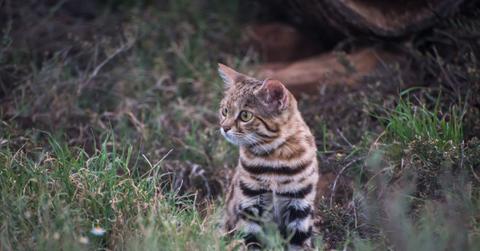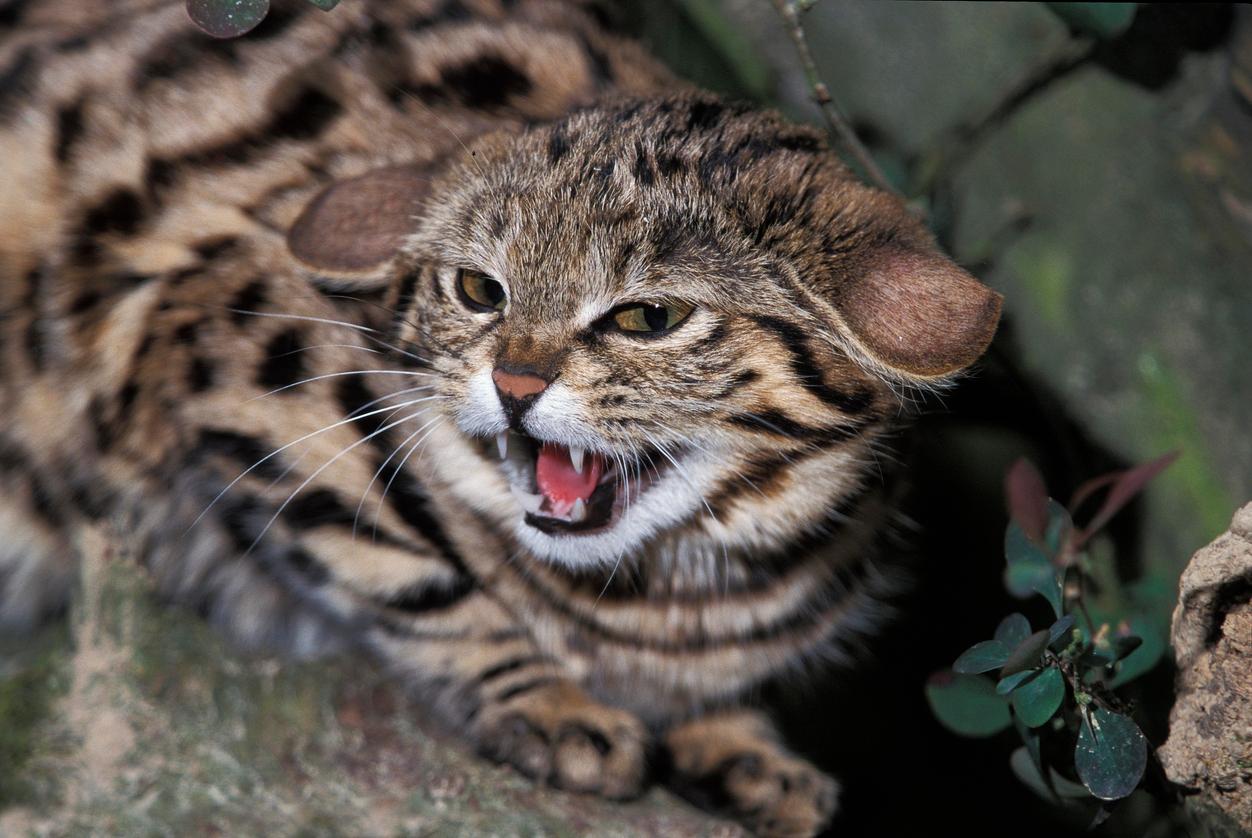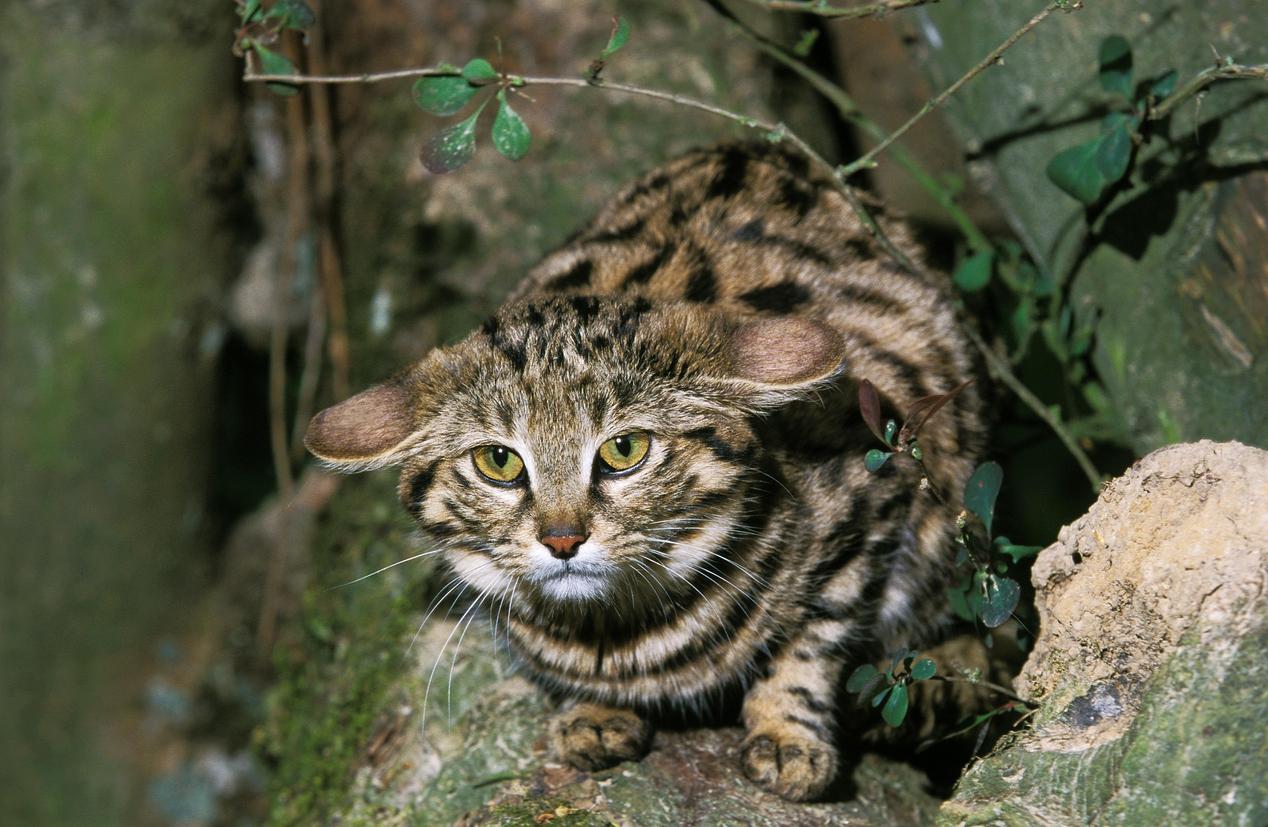Can You Keep a Black-Footed Cat As a Pet? Experts Say "No" to World's Deadliest Cat
Published Jan. 3 2024, 3:21 p.m. ET

The black-footed cat is as adorable as it is deadly, so it is no wonder that many cat-lovers are asking if you should you keep them as pets. There are many different wild felids that appear just as small, cute, and cuddly as the domestic house cat, so you could be excused for hoping the adorable black-footed cat could be your next adopted housemate.
Per Big Cat Rescue, the black-footed cat develops more quickly than the common house cat, is nearly 2.5 pounds to just over 4 pounds as a mature adult, and between 8 and 10 inches tall. To wit: every bit as adorable as the domesticated cat sleeping by your side, and perhaps as dangerous as the big cats we admire and revere.

Can you have a black-footed cat as a pet?
Unfortunately, it doesn't appear that a black-footed cat is suitable for a human home.
It's natural to see the beautiful spotted or striped black-white-buff-colored coat of the black-footed cat, as described by Big Cat Rescue, and desire to keep them as pets. However, their dwindling numbers, and being prone to kidney issues in captivity, makes the idea of keeping one as a pet an unsafe one.
That doesn't mean, however, that zoos haven't tried to intervene.
As Mongabay notes, the African native cat is a phenomenal nocturnal hunter with a staggering decline in numbers due in part to a lack of conservation efforts, as it went unstudied until fairly recently.
According to Big Cat Rescue, a black-footed cat held in captivity can live to about 13 years of age, but that comes with caveats: In September 2023, the oldest known black-footed cat, 18.5-year-old Sanura, died at Utah's Hogle Zoo, according to the Utah-based KSL News. Sanura previously made her mark in the record books when she had four kittens, becoming the oldest black-footed cat to give birth at age 14.
Certainly, a questionable move, ethically, for a cat already past the average lifespan when held in captivity.
Aside from the obvious dangers that present themselves when an undomesticated cat is held in captivity by untrained humans, Mongabay reports that the ones observed in captivity have been difficult to breed and are susceptible to a disease which leads to "catastrophic kidney failure."
The disease, which Mongabay explains has confounded even the zoos which try to breed black-footed cat, persists as an issue that threatens conservation efforts and, of course, would be a difficult feat for the average household to manage.
Nevertheless, in January 2024, Utah’s Hogle Zoo introduced an 8-month-old female black-footed cat named Gaia, per ABC4 in Utah. Gaia joins male Ryder, already present at the zoo, which plans to introduce the two when Gaia reaches physical maturity.

Can a black-footed cat kill a human?
The adorable-but-deadly black-footed cat is pound-for-pound a cold-blooded killer up there with the best of them. According to Smithsonian Magazine, it weighs approximately 200 times less than a lion; yet, the black-footed cat's 60 percent successful hunting rate, when extrapolated, means it can hunt its prey more successfully "in a single night than a leopard does in six months."
But can a black-footed cat kill a human?
The chances aren't great, according to Smithsonian Magazine, which notes that the black-footed cat is more likely to seek rodents and birds among its prey. Its preference is to hunt at night, and the creature has an "extreme[ly] unsocial" nature, according to Big Cat Rescue. All this means the likelihood of a black-footed cat running into a human, let alone target a human as prey, is a nonissue.